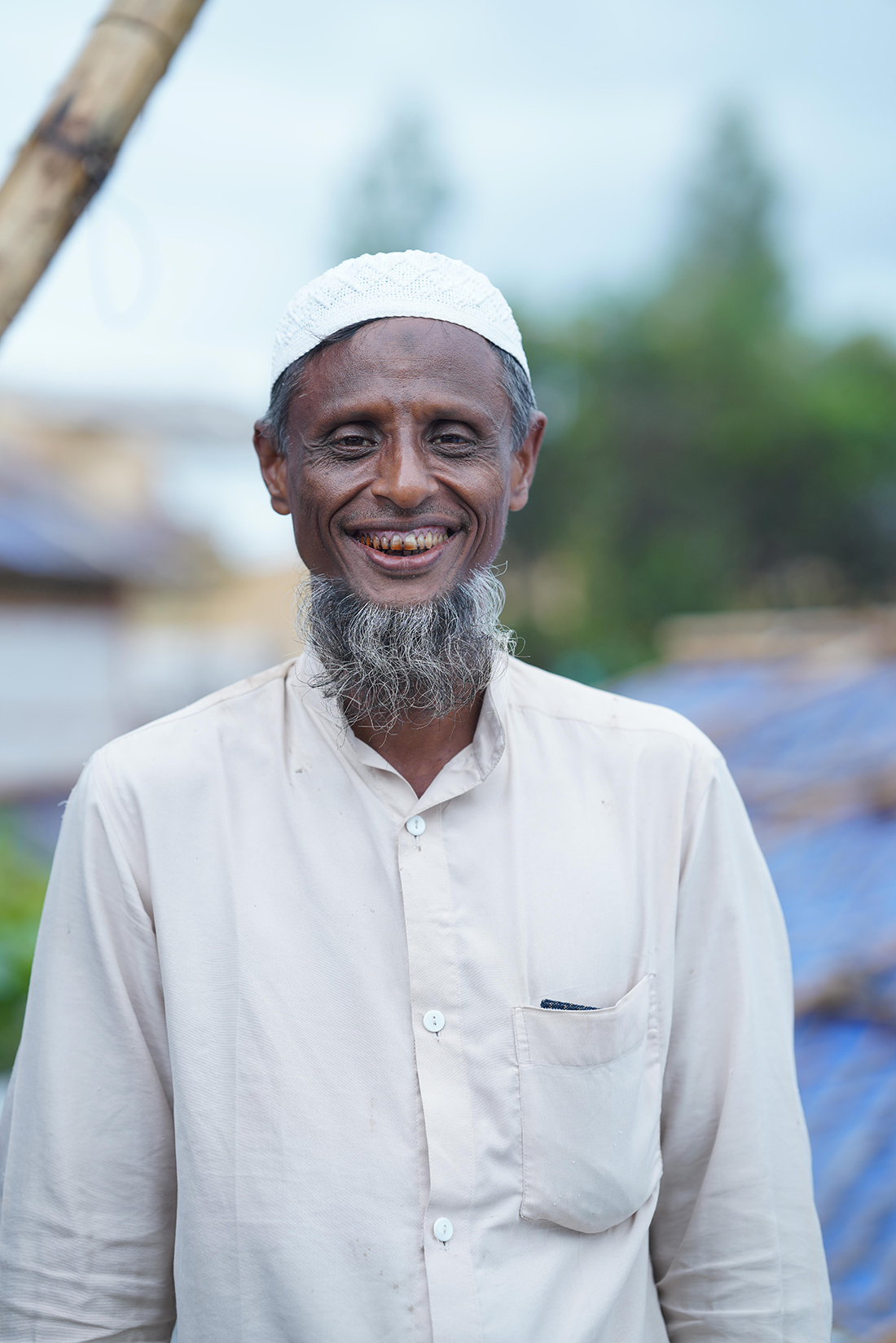
In the traditional and patriarchal context of the Rohingya community, women often face a lack of empowerment and limited freedom to exercise their reproductive rights. The decision-making process surrounding birth control methods is predominantly influenced by men, leaving women with minimal agency. However, Faza Rahman is breaking the norm amidst this challenging social landscape by actively advocating for women's reproductive rights. Despite living in an environment that restricts women's autonomy, Faza recognizes the need for change and the significance of empowering women to make decisions about their own bodies.
He had no prior experience with family planning until he attended one of the community events. During this event, Faza learned about the different methods of family planning and the benefits associated with each one and decided to opt for a long-term family planning method, the implant. He highlighted his reasons, "I did not want to have any more children due to my limited living space, financial constraints, and my family's health issues, including skin illnesses and overall frailty. These factors led my wife and me to visit the CARE Bangladesh Community Clinic, where we obtained the desired long-term contraceptive method."
Faza chose to take a proactive role in advocating for his wife's reproductive rights and fostering open communication within their relationship. Together, they visited the CARE Bangladesh Community Clinic to explore the available long-term contraceptive options. However, their journey encountered a hurdle when Faza's wife was diagnosed with Hepatitis C, rendering her unable to utilize long-acting reversible contraception (LARC). Understanding the risks associated with the bloodborne and sexually transmitted disease, the CARE team supported Faza in considering alternative options. They emphasized the importance of using male condoms as a temporary contraception method, thus safeguarding both his wife's health and their reproductive choices.
Faza expressed, "I was so worried that my wife's medical condition would potentially disrupt our marital life. However, after gaining in-depth information about family planning methods and receiving guidance from CARE service providers, I now understand the significance of family planning and feel relieved that my wife's illness won't affect our marital life."
Inspired by his transformation and the newfound awareness of the importance of women's reproductive rights, Faza actively engages with his community. He shares information about health and family planning services, emphasizing the significance of male involvement in decision-making processes. Through his advocacy efforts, Faza aims to break societal barriers and challenge orthodox beliefs, fostering an environment that empowers women to exercise their reproductive autonomy.
Faza Rahman's journey is a testament to the transformative power of male engagement and the need to prioritize women's reproductive rights in traditionally conservative communities. By challenging established norms and advocating for change, Faza sets an example for others to follow, paving the way toward a more equitable and empowered society where women's voices are valued, and their reproductive choices are respected.